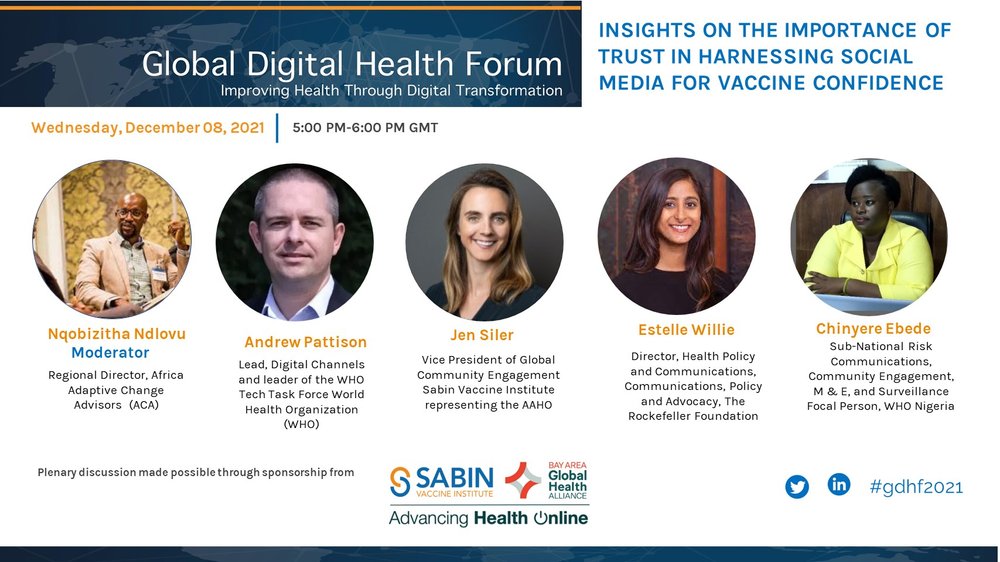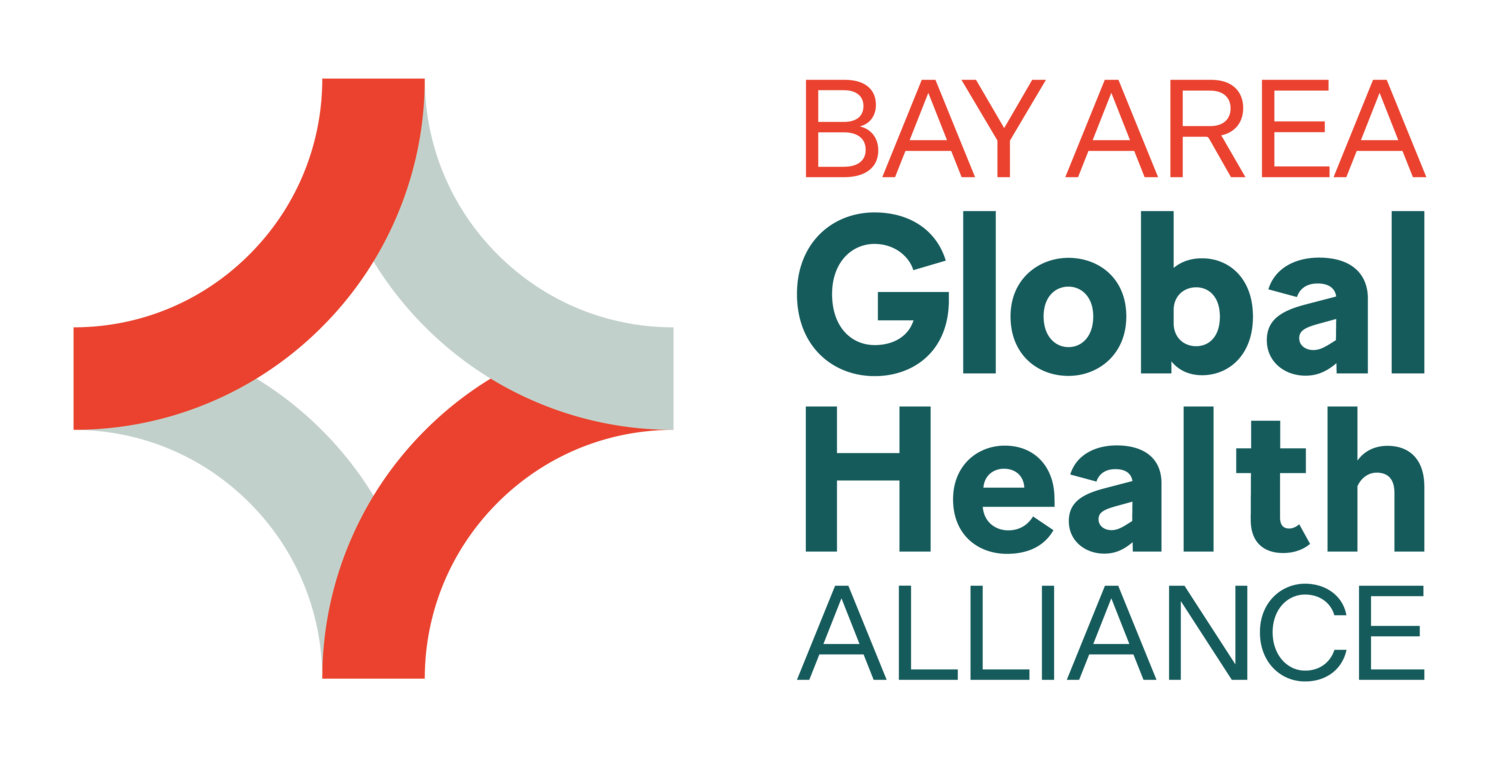Connecting for innovation and impact for all in global health

- This event has passed.
GDHF 2021: Insights on the Importance of Trust in Harnessing Social Media for Vaccine Confidence | December 8, 2021
December 8, 2021 @ 9:00 am - 10:00 am

About the event
“If there’s one thing that we can learn from the COVID-19 pandemic, it’s that communications can no longer be the ugly step-child of an outbreak investigation,” said Estelle Willie of The Rockefeller Foundation at the closing plenary at the Global Digital Health Forum held on December 8. “It is always the last thing that people think about and the first thing that gets blamed for any issue.”
The Alliance convened the panel with AAHO partner Sabin Vaccine Institute to explore the importance of trust in building vaccine confidence and social media’s capacity to shape health behaviors. Panelists Andy Pattison (WHO), Jen Siler (Sabin Vaccine Institute) and Chinyere Ebede (WHO Nigeria) joined Estelle Willie in sharing their diverse experiences and learnings in an engaging discussion moderated by Nqobizitha Ndlovu (Adaptive Change Advisors).
“When we talk about dealing with the community, we really need to devise means of getting them to trust what we are doing with vaccination, both for COVID-19 and for other child immunizations,” said Chinyere Ebede while speaking about reaching communities with high levels of vaccine hesitancy. “What we do is localize communication and get their own people to pass the right information to them … These are people who, over time, have won the trust of the community people.”
“People need to get accurate and timely information to make informed decisions to protect themselves and their loved ones,” added Estelle Wille, when asked about the Mercury Project, The Rockefeller Foundation’s new $10M initiative to combat mis- and disinformation in public health.
“Vaccine acceptance and demand challenges are the most common issue that’s brought up in conversations and programming through the Boost Community [of vaccine implementers] and we see it as one of the biggest challenges for so many reasons. Also because it’s not just technical, it’s an adaptive challenge, a challenge that doesn’t have just one answer. It leaves us in that grey space so the term trust…I hear the word trust in every conversation I’ve had with Boost members in the last year,” says Jen Siler of Sabin Vaccine Institute when sharing perspectives from Sabin’s Boost Community, a global network of immunization professionals.
Jen shared a story from a Lead Expanded Program Immunization (EPI) manager in Bangladesh that used a combination of social media and door-to-door campaigns to help people protect themselves from COVID-19 while continuing to get routine immunizations. This multi-faceted solution proved to be effective in regaining communities’ trust in routine immunizations, a connection that was lost when COVID-19 hit the country.
WATCH THE RECORDING:
SPEAKERS:
Andrew Pattison – Team Lead, Digital Channels and leader of the WHO Tech Task Force, World Health Organization (WHO)
Jen Siler – Vice President of Global Community Engagement, Sabin Vaccine Institute, representing the AAHO
Estelle Willie – Director, Health Policy and Communications, Communications, Policy and Advocacy The Rockefeller Foundation
Chinyere Ebede – Sub-National Risk Communications, Community Engagement, M & E, and Surveillance Focal Person, WHO Nigeria.
Nqobizitha Ndlovu (Moderator) – Regional Director, Africa Adaptive Change Advisors (ACA)
